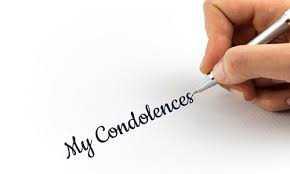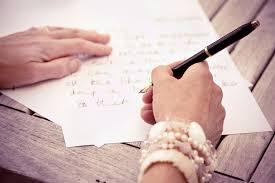Letters Of Condolence
- You are extending respect and friendship. Write quickly, and preferably by hand.
- You’ll want to calibrate what you write to your relationship both with the recipient and with the deceased. Make it personal.
- If you knew the deceased well, sharing a couple of warm memories will let the recipient feel there’s a shared bond.
- If you didn’t know the deceased, you can make respectful reference to what you knew of them.
- Use tact. Don’t tell the recipient how they should be feeling.
- If you’re finding it hard to know what to say, you can acknowledge that; but don’t harp on it.
- Avoid operatic, or competitive, expressions of grief.
- Acknowledge, but don’t belabour, the grief and pain they feel.
- Focus on the individual excellence of the deceased rather than the consequences of the loss itself.
- Be tactful of their religion even if you don’t believe in it.
411
572 reads
The idea is part of this collection:
Learn more about communication with this collection
How to set achievable goals
How to manage time for personal and professional life
How to avoid distractions
Related collections
Similar ideas to Letters Of Condolence
Letters Of Complaint
Be polite. The person who gets your letter will seldom be the one who wronged you. And is unlikely to pass it on to the desired recipient if you are insulting and raging.
Make plain how you’ve been inconvenienced, then propose what’ll seem to your correspondent a reasonable and pr...
10 Tips on Writing
- Read the Roman-Raphaelson book on writing.
- Write the way you talk. Naturally.
- Use short words, short sentences and short paragraphs.
- Never use jargon words that sound pretentious.
- Never write more than 2 pages on any subject...
More journal prompts
- What was the last positive habit you’ve introduced into your life? How has it impacted you?
- Write a thank you note to yourself.
- What motivates you? When do you feel most motivated?
- What is one lesson you’ve learned in the last month?
- List 5 things you wish peo...
Read & Learn
20x Faster
without
deepstash
with
deepstash
with
deepstash
Personalized microlearning
—
100+ Learning Journeys
—
Access to 200,000+ ideas
—
Access to the mobile app
—
Unlimited idea saving
—
—
Unlimited history
—
—
Unlimited listening to ideas
—
—
Downloading & offline access
—
—
Supercharge your mind with one idea per day
Enter your email and spend 1 minute every day to learn something new.
I agree to receive email updates


